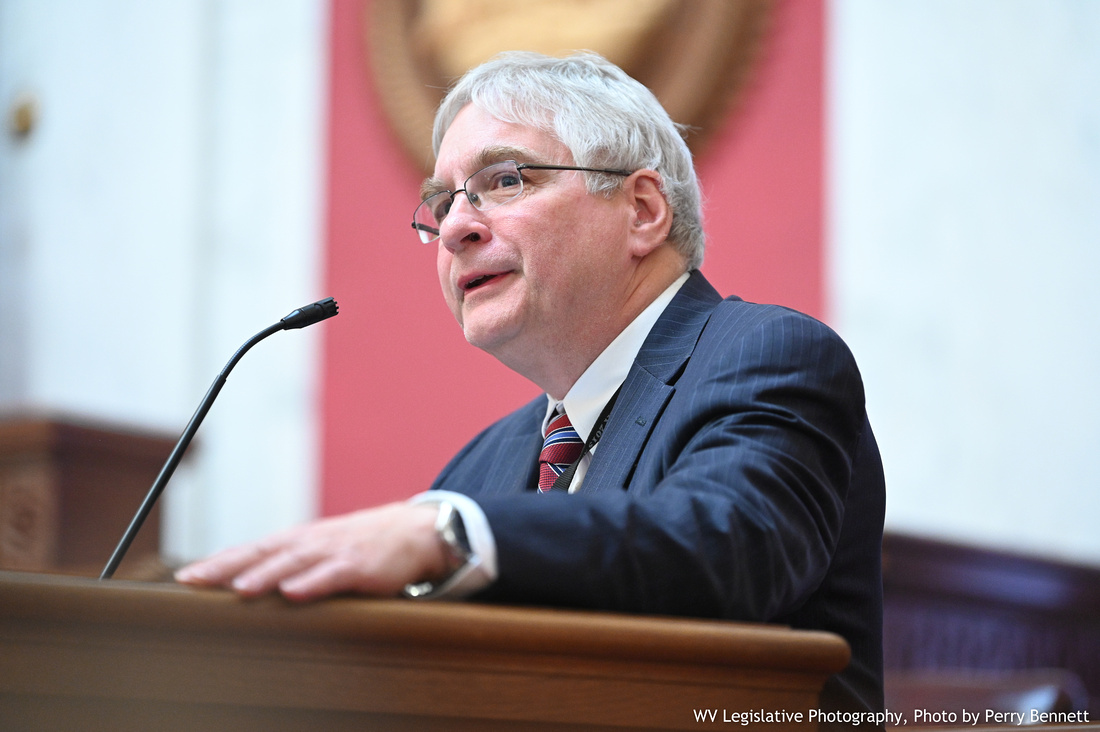West Virginia tax collections are higher than estimated, but it is unclear if another personal income tax cut will happen in 2025.
Legislators heard Monday from Mark Muchow, the deputy secretary of the state Department of Revenue, about 2024 budget revenue numbers.
“After nine months, the state has collected more than $4.07 billion. That’s $522.9 million above estimate,” Muchow said. “It’s down from last year by 11.6 percent, which is pretty good considering that we cut the income tax by 21.25 percent and some reductions occurred in the severance tax as well.”
Muchow said personal income tax collections are $184.1 million above estimate for the year. He explained that it is down 9.4 percent year to date over last year.
“Again, 9.4 percent is pretty good considering that we cut the tax rates by 21.25 and the income tax as a whole was over 40 percent of general revenue fund collections,” Muchow said.
Severance taxes on coal, gas and oil were budgeted for just $22.1 million for this fiscal year to date. So far, the state has collected $48.129 million. That sounds promising, except the previous fiscal year brought in nearly $85 million at this point in 2023 and is off more than 43 percent.
Since taking office, Gov. Jim Justice has maintained relatively flat budgets and kept budget estimates low as well. That has guaranteed annual budget surpluses. Over the last few years, they have topped $1 billion each fiscal year.
Last year, when the West Virginia Legislature passed the personal income tax cut, the bill included triggers that would further reduce those taxes. The triggers are tied to budget surpluses.
Del. Larry Rowe, D-Kanawha, asked about the trigger mechanism during Monday’s meeting.
“Are you able to project whether the August trigger is going to come into play or not?” he said.
“It’s too early for us to do that type of projection. There’s a lot of revenues outstanding. I do believe that the income tax is going to trend lower over the final, at least over the April, May period, [it] may bounce back in June,” Muchow said. “But there’s too many variables out there to make a good, firm analysis on the trigger.”
“When do you think you’ll comfortably be able to make that calculation?” Rowe asked.
“We will not have a complete idea till the end of June,” Muchow said. “But we’ll have a better idea for the end of April. And even better at the end of May. So by the end of May, things will be a little bit better in focus than they are today.”
“So if we were to have a special session in May, and that has been discussed, then you may have the numbers you need to calculate whether the August trigger will come into play?” Rowe asked.
“We’ll have a better idea, but not a perfect idea,” Muchow said. “Again, there’s a number of variables outstanding that we’d have to consider in that equation.”
The Legislature is expected to return to Charleston for a special session on the budget in mid-May following the election but before the end of the month.
